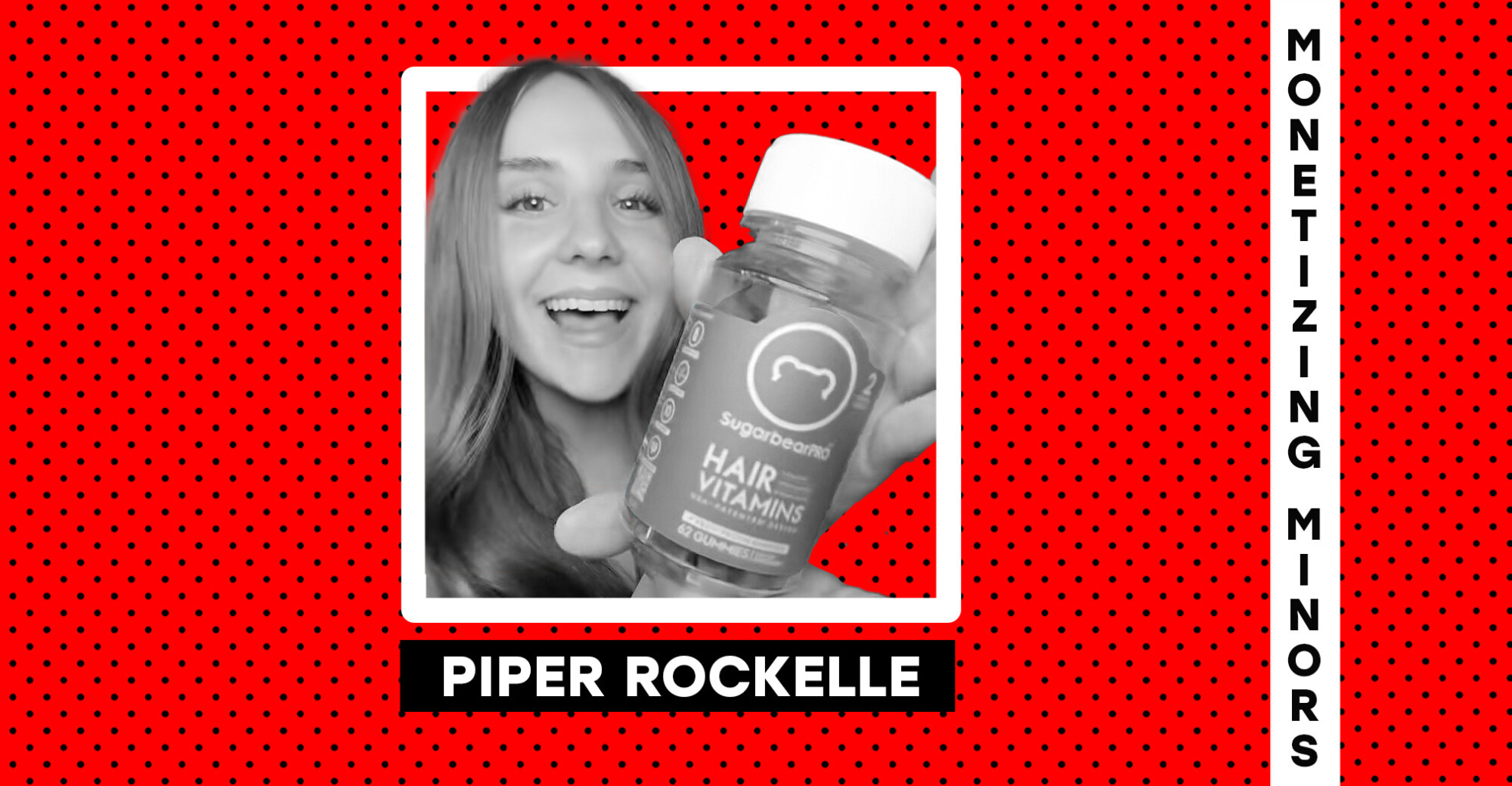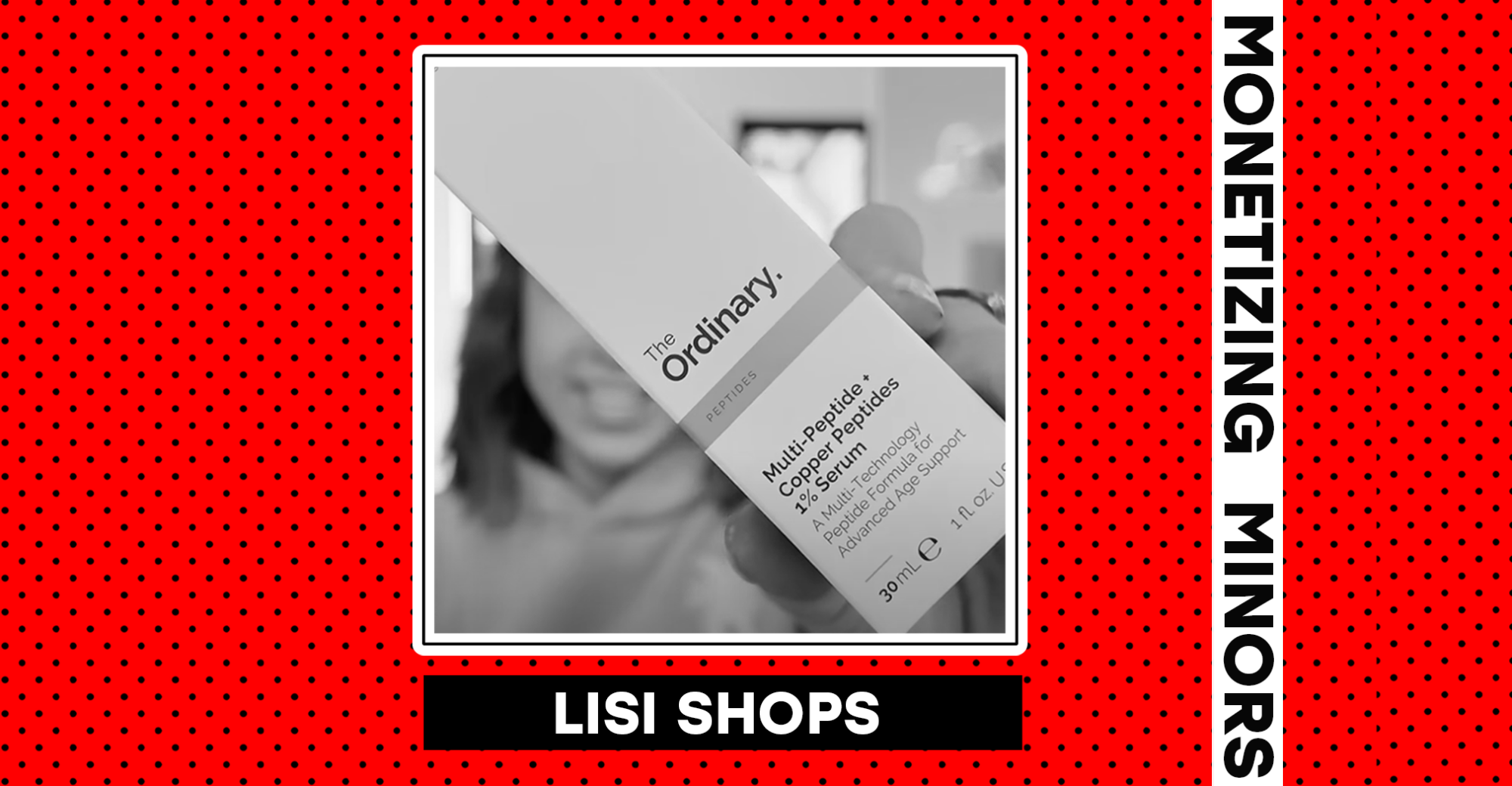
Monetizing Minors: Piper Rockelle
A calorie-counting app is just one of the adult products promoted on this minor’s social media channels.
Would you feel differently about a cute bikini you saw on social media if you knew the person wearing it got it for free and got paid to promote it?
A recent class-action lawsuit against Beach Bunny Swimwear and several of its influencers, including Anabel Sanchez, Vlada Glukhova and Celisa Franco (shown above), alleges that “a good part” of the company’s $19 million in annual revenue can be directly attributed to undisclosed endorsements on social media, especially Instagram.
The boom BBS experienced could not have been possible without the “sales power” provided by the Influencers that claimed that they love the company’s products.
But while professing their love for the company’s swimwear, the influencers failed to mention that they got the products for free and were compensated for the endorsement, according to the pending lawsuit.
In most of the posts Influencers will only tag BBS by including their handle, suggesting that this is their choice when it comes to swimwear. In other words, Influencers make it appear that they purchased BBS products as opposed to other products, because of the qualities of the product.
The FTC’s Endorsement Guides are clear that if there’s a material connection between an endorser and the marketer (such as a payment or a free or discounted product) that isn’t obvious, it needs to be clearly and conspicuously disclosed. And simply tagging a brand in a sponsored post isn’t going to cut it, the guides say.
Tagging a brand is an endorsement, but it’s not a disclosure that you have a connection to a brand. You could just be tagging it because you like it.
But it’s not just Beach Bunny and its fit army of influencers.
Since 2022, more than two dozen lawsuits have been filed against brands (and, in many cases, their influencers) accusing them of shirking FTC guidelines and FTC law regarding the need to disclose influencers’ material relationships with brands in promotional posts. Other brands named in litigation include Lulu Fama (another swimwear brand), Revolve, Shein, Celsius, HiSmile and Olaplex.
The lawsuit against fashion brand Revolve, which was filed in April by the same two law firms that sued Beach Bunny, also names a number of its influencers as defendants, including Tika Camaj, who is also a defendant in the Beach Bunny case, and Nienke Jansz, who regularly promotes swimwear and other summer fits on her Instagram page.
The lawsuit filed against Shein similarly flags a number of undisclosed influencer posts for, among other things, summer garb.
What the FTC refers to as a “material relationship” with a brand can range from the gift of a free product to lucrative endorsement deals brands have with some of the biggest names in sports and entertainment.
For example, Tom Brady was reportedly paid $55 million to promote the now-defunct crypto exchange FTX. But he did so without disclosing the nature, scope and amount of compensation he received in exchange for the promotion, according to a consolidated lawsuit against the five-time Super Bowl MVP.
Brady isn’t the only A-list promoter in the FTX case. And recently one of the other celebrity defendants in the case – none other than “The Big Aristotle” himself, Shaquille O’Neal – agreed to pay $1.8 million to settle the undisclosed endorsement allegations. Meanwhile, the claims against the other defendants are pending.
The bottom line
Under FTC law, influencers have a legal obligation to clearly and conspicuously disclose their material connection to the products, services, brands and/or companies they promote in their social media feeds.
Find more of our coverage on influencer marketing.
A calorie-counting app is just one of the adult products promoted on this minor’s social media channels.
What’s this kidfluencer doing promoting a “youth cream”?
TINA.org has tracked more than 150 lawsuits alleging greenwashing.

